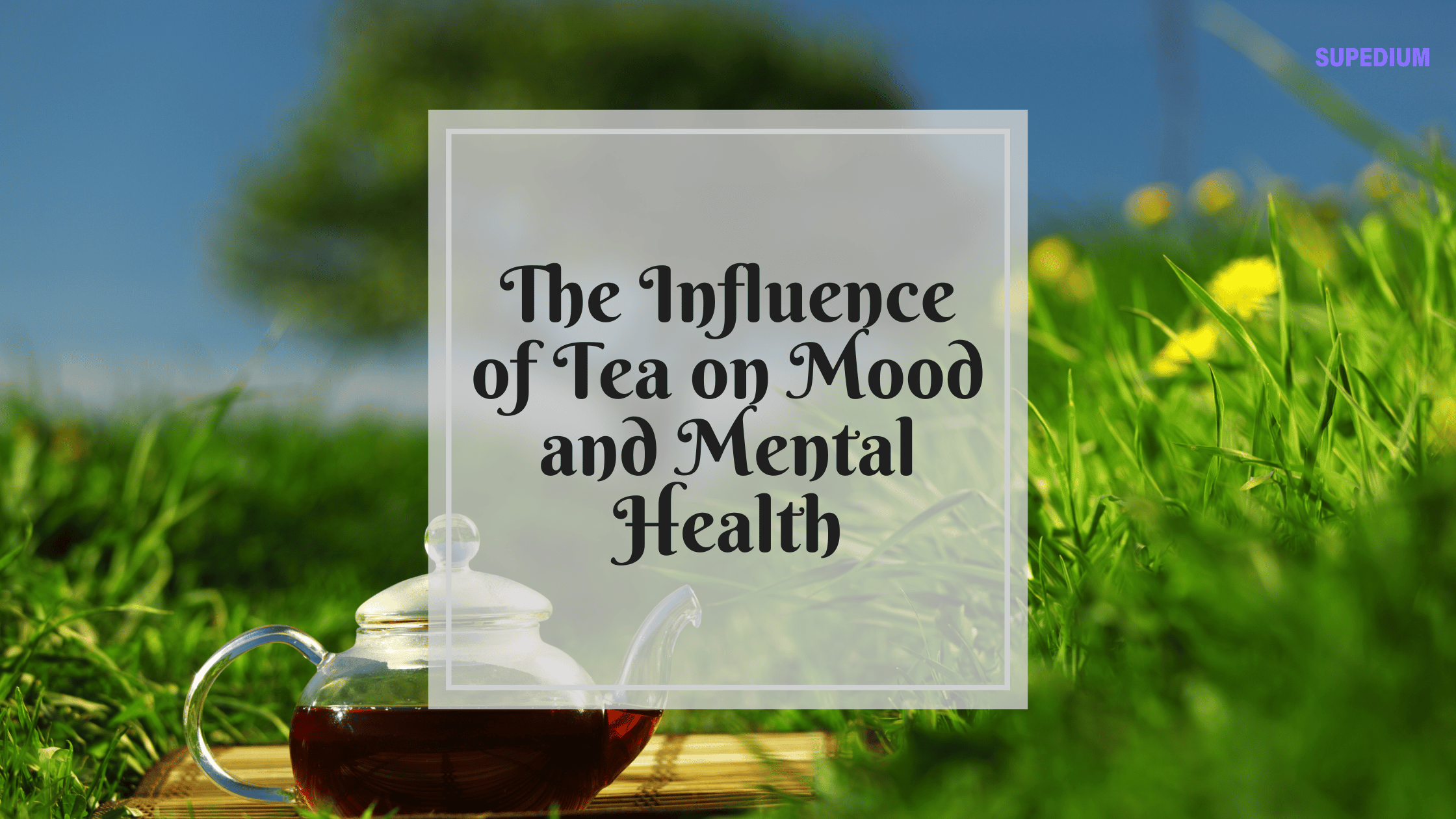Table of Contents
![]()
Tea, one of the most universally cherished beverages, has been enjoyed for centuries for its diverse flavors and cultural significance. Beyond its taste, tea has been a subject of interest for its potential effects on mood and mental health. This article explores the influence of tea on psychological well-being by examining its chemical components, the impact of different types of tea, scientific research, traditional perspectives, and practical recommendations.
Chemical Components of Tea
Tea is rich in a variety of compounds that can impact mood and mental health. The primary components of interest are caffeine, L-Theanine, polyphenols, and minor compounds like fluoride.
Caffeine is a well-known stimulant found in tea, particularly in black and green varieties. It enhances alertness, improves concentration, and can elevate mood by increasing the levels of neurotransmitters like dopamine. However, excessive caffeine intake can lead to jitteriness, anxiety, and dependency.
L-Theanine, an amino acid unique to tea, works synergistically with caffeine. It promotes relaxation and reduces stress without causing drowsiness. L-Theanine increases the production of alpha waves in the brain, which are associated with a state of calm and focused relaxation.
Polyphenols, including catechins and flavonoids, are antioxidants that contribute to tea’s health benefits. They help protect brain cells from oxidative stress and inflammation, which are linked to cognitive decline and mood disorders. Research suggests that polyphenols can enhance cognitive function and potentially improve mood.
Fluoride and other minor compounds present in tea contribute to overall health but have limited direct effects on mood. The presence of these compounds supports dental health and has other minor physiological benefits.
Impact of Different Types of Tea
The effects of tea on mood and mental health vary depending on the type of tea consumed.
Black Tea is known for its higher caffeine content compared to other teas. This can lead to increased alertness and mood enhancement. However, excessive consumption might cause negative side effects such as increased anxiety or sleep disturbances.
Green Tea contains a balanced combination of caffeine and L-Theanine. The moderate caffeine content enhances cognitive function and mood, while L-Theanine helps reduce anxiety and promotes relaxation. This balance makes green tea particularly effective for improving focus and emotional stability.
Herbal Teas, such as chamomile, peppermint, and valerian, are caffeine-free and often used for their calming effects. Chamomile is renowned for its ability to improve sleep quality and reduce anxiety. Peppermint can enhance mood and cognitive performance, while valerian is used for its sedative properties, aiding in relaxation and sleep.
Oolong and White Teas contain moderate levels of caffeine and L-Theanine. Oolong tea, with its partially fermented leaves, can offer a middle ground between black and green tea, promoting both alertness and relaxation. White tea, being the least processed, has a delicate flavor and a milder effect on mood and mental clarity compared to other types.
Scientific Research and Evidence
Numerous studies have investigated the effects of tea on mood and mental health.
Caffeine and Mood: Research indicates that caffeine can enhance mood and cognitive performance by blocking adenosine receptors, leading to increased levels of neurotransmitters such as dopamine and norepinephrine. However, excessive intake may lead to negative effects like anxiety and disrupted sleep.
L-Theanine and Stress: Studies have shown that L-Theanine can effectively reduce stress and anxiety levels. It promotes a state of relaxation without drowsiness, making it useful for managing stress and improving cognitive performance.
Polyphenols and Mental Health: Polyphenols in tea have been linked to improved cognitive function and mood stabilization. They combat oxidative stress and inflammation, which are associated with cognitive decline and mood disorders. Research suggests that regular tea consumption may reduce the risk of neurodegenerative diseases and improve overall mental health.
Clinical Trials and Meta-Analyses: Systematic reviews and meta-analyses of clinical trials support the beneficial effects of tea on mental health. However, they also highlight the need for further research to fully understand the long-term impact of tea consumption on mood and cognitive function.
Traditional and Cultural Perspectives
Tea has been an integral part of many cultures, often associated with mental and emotional well-being.
Traditional Uses: In Asian cultures, tea ceremonies and practices are deeply rooted in promoting mental calmness and mindfulness. For instance, Japanese tea ceremonies emphasize tranquility and reflection, contributing to mental well-being.
Modern Adaptations: In contemporary wellness trends, tea-based products are popular for their purported health benefits. This includes a range of herbal teas marketed for stress relief and mental clarity, reflecting a blend of traditional beliefs and modern health practices.
Practical Applications and Recommendations
Incorporating tea into a mental health regimen can be beneficial, but it should be done thoughtfully.
Recommended Types of Tea: For mood enhancement and stress reduction, green tea and herbal teas such as chamomile and peppermint are highly recommended. They offer a balance of beneficial compounds that support mental well-being.
Potential Risks: Overconsumption of caffeinated tea can lead to side effects such as anxiety, insomnia, and digestive issues. It is important to monitor intake and choose lower-caffeine options if sensitivity to caffeine is a concern.
Additional Tips: Combining tea consumption with other lifestyle practices, such as regular exercise, mindfulness, and a balanced diet, can further enhance its positive effects on mood and mental health.
Conclusion
Tea, with its diverse varieties and rich chemical profile, has a notable influence on mood and mental health. Scientific research supports its potential benefits, particularly through its unique combination of caffeine, L-Theanine, and polyphenols. Traditional practices highlight the historical and cultural significance of tea in promoting mental well-being. By incorporating tea thoughtfully into daily routines and combining it with other healthy practices, individuals can harness its benefits for improved mental health and overall quality of life.
Share This





Be the first to comment